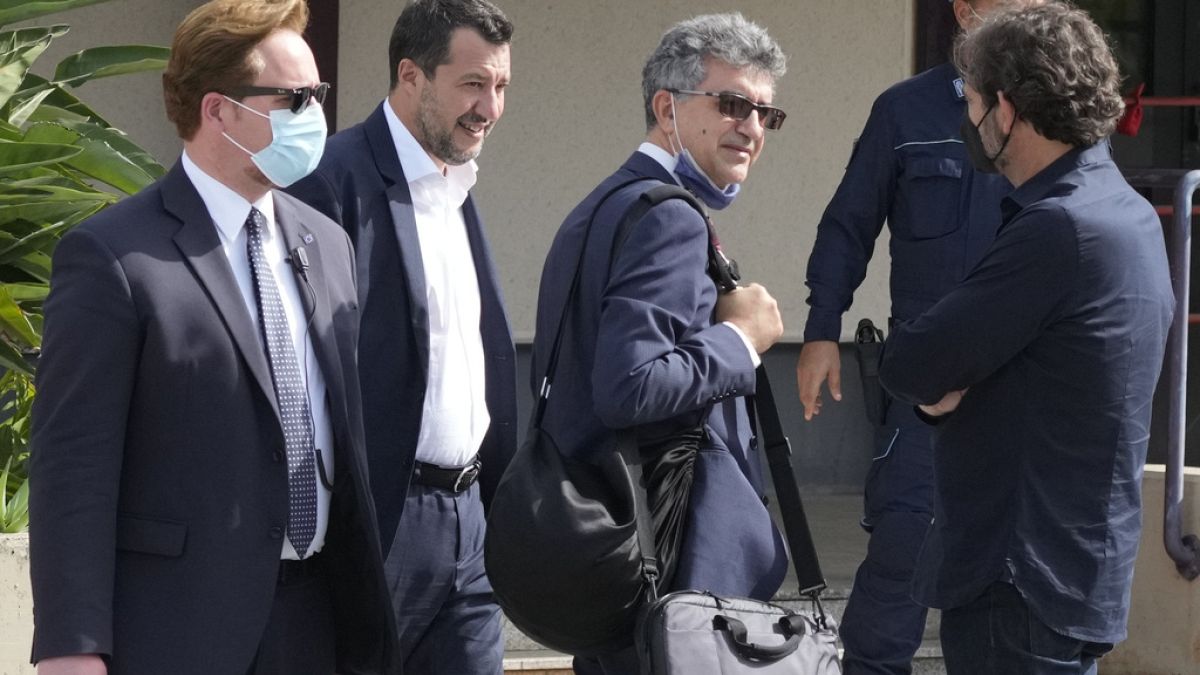After a trial that has lasted three years, with 24 hearings and 45 witnesses, a verdict will be finally reached in the “Open Arms trial” this Friday in Palermo. But this will be no ordinary verdict – Italy’s Deputy Prime Minister Matteo Salvini could face a sentence of up to six years in prison.
The former Interior Minister has been charged with kidnapping after preventing 147 migrants from disembarking on the island of Lampedusa in 2019.
The League (Lega) leader has already made clear he will not step down if found guilty and vowed to enter the courtroom with his “head held high”. He believes that defending borders is not a crime: “Should I end up being convicted”, he said, “it would be a major defeat for Italy and Europe.”
The Patriots for Europe group has defended Salvini’s actions, while members of the League party say they are ready to take to the streets if their leader is convicted. Simonetta Matone, a League deputy in the Italian parliament, expressed hope for an acquittal but stated that, if convicted, “we will respond using the mechanisms provided by the rule of law and the appeals system.” She added that “the political repercussions in the event of a conviction will be also taken into consideration.”
The Spanish NGO Open Arms, whose vessel had rescued the migrants, waited more than two weeks before being allowed to disembark those onboard. Open Arms’ Italian lawyer Arturo Salerni dismissed the League leader’s claims that he was defending Italy’s borders, adding that as Interior Minister Salvini had a duty to protect the human rights of those on board.
Open Arms has joined the trial as civil participant, with the NGO’s founder and director, Oscar Camps, also attending the hearing on Friday. Open Arms says that as a result of what happened, their operations suffered a significant setback. However, they reject claims by Salvini and his supporters that the trial is “politically motivated”.
Valentina Brinis, Advocacy Officer for Open Arms, told Euronews: “we sought the truth to understand what happened at the time, and we are very satisfied, thanks to the testimonies, and after all these years, a fundamental truth has emerged: saving lives is not a crime but a duty for all of us.”
In the case of a conviction, Salvini has the right to appeal, a process that could take years before a final verdict is reached. The judges’ decision is also about whether border protection policies should take precedence over human rights, a hotly debated issue in Brussels. The ruling will have significant implications for both Italy and Europe.

